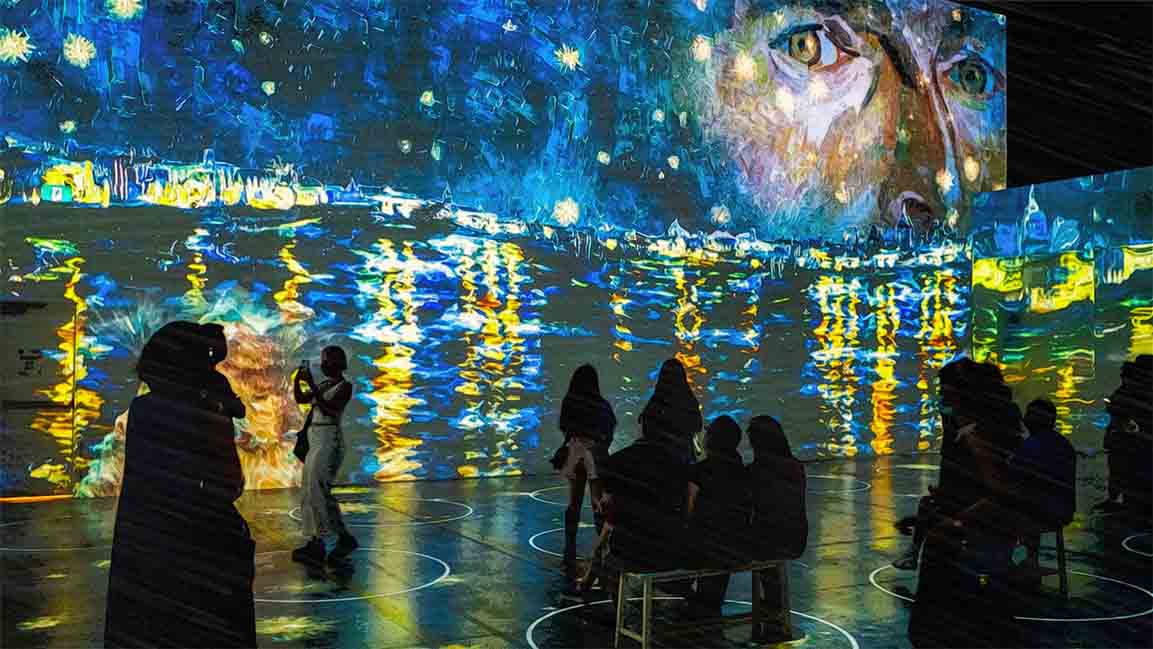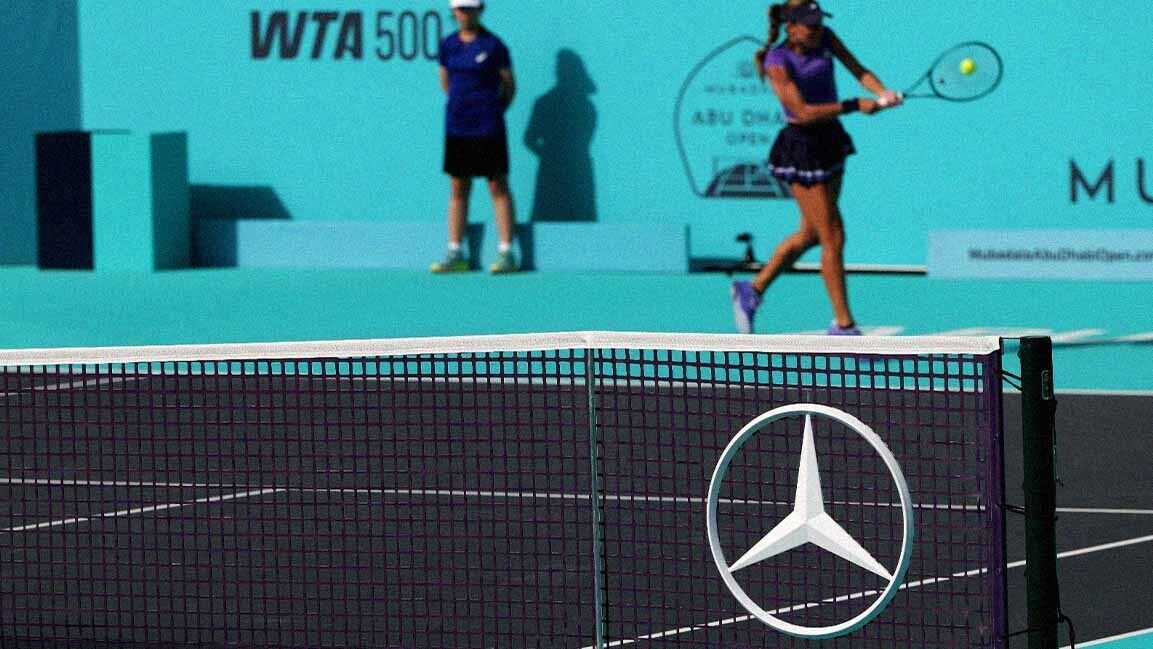- | 9:00 am
From ROI to ROE — the experience economy in the Middle East seems to be thriving
There’s a new consumer mindset that expects all five senses to be engaged when it comes to marketing, and the region has responded with gusto

Drive down Dubai’s Sheikh Zayed Road, and you’ll see a mammoth billboard for the new Atlantis The Royal Hotel on Palm Jumeirah with the bold tagline “The most ultra-luxury experiential resort in the world.”
This grand advertisement seems to encapsulate the current vibe around the over-performing emirate – as does the landmark hotel itself. It opened to great hype in January, with A-listers jetting in for an invitation-only weekend with Beyonce entertaining guests.
But for those with a keen business eye, the word “experiential” might jump out. Yes, the “experience economy” has properly taken off in the region and is now shaping almost every sector, forcing marketing departments to rethink their strategies to engage a young, socially savvy audience.
The experience economy was coined by leading American economist Joseph Pine in 1998; he believed the next generation of consumers would prefer compelling experiences over products. It may have taken a few decades for his vision to be realized – helped along mightily by the impact of the pandemic. After two years of restrictions, consumers want to do more, feel more, and experience more.
COMMITTED TO USING EXPERIENCE
And at Atlantis The Royal, they can do just that with a host of activities, including watching the spectacular Skyblaze Fountain fire and water show, swimming in the sky at the Cloud 22 infinity pool, or perhaps going on an underwater shark safari.
From food to fashion and travel to theme parks to concerts and cinemas, consumers increasingly prefer immersive experiences, and the business world has been shifting toward offering new experiences.
The GCC has been fully committed to using experiences to boost GDP in the past few years. In 2022, the UAE held one of the largest World Expos in Dubai, followed by Qatar as the first-ever Middle Eastern country to host the FIFA World Cup. This push to welcome large-scale events in the region highlights the realization that to diversify their economies, the countries must look beyond oil and fundamentally embrace rapid change.
Smaller in scale but also impactful has been the rise of the pop-up. By staging innovative experiences at events and tradeshows – often using virtual reality tools or live performances – switched-on brands are surprising and delighting passers-by, who then share the moment on social media. Lucrative word of mouth without too much investment – what’s not to love?
The regional travel sector has also latched on to the experience economy, especially as holidaymakers lose interest in pre-packaged, standard tourism. That’s why an increasing number of companies offer niche breaks such as farm stays in the UAE, whale shark watching in Qatar, and mind-body-spirit retreats in Saudi Arabia – the possibilities are endless.
Indeed, when it comes to attracting visitors, Saudi has the memo and is going all in with experiential projects such as the New Murabba Development. This futuristic development in Riyadh is reimagining what a downtown district looks – and crucially ‘feels’ like – by integrating advanced technology to create immersive worlds that blend the physical and digital.
Of course, all this activity has drawn the attention of international corporations keen to get a slice of the Middle Eastern action – especially as many Western markets continue to buckle under the financial slump.
However, Catherine Granger, CEO of Dubai’s Trajan Consulting, says that before spending a dollar on marketing, she advises clients to find new ways to stand out.
ROI TO ROE
“The Middle East is at this interesting inflection point where growth, expansion, and innovation are each moving so fast your heads start to spin – especially noticeable in Saudi Arabia, where we’ve been operating since 2008. That’s why the old ways of reaching consumers won’t cut it,” she said.
“We, therefore, urge businesses to get creative and look for ways to engage prospective customers in an interesting way by utilizing new technology such as AI. Anything less, and they’re going to struggle.”
Some companies tapped into the experiential trend early on, such as regional events firm Live Nation. Its offering extends beyond selling tickets for music shows, comedy gigs, and festivals to the digital realm, where social media plays a significant role in allowing people to relive those special moments. The company also offers various supplementary experiences such as meet and greets, merchandise, VIP packages, and early entry tickets.
“Over the past five years, the demand for live entertainment has steadily grown, particularly in the wake of the pandemic,” says James Craven, President of Live Nation Middle East.
“The desire for fans to witness their favorite acts perform live remains strong, but there is also a growing interest in discovering new and emerging artists. Therefore, we emphasize not only renowned international acts like the Backstreet Boys but also local and regional talent.”
According to Benjamin Kershaw, founder of Hivemind Creative Marketing in Dubai, the post-pandemic event space in the region has evolved on all fronts, with clients shifting their focus from ROI to ROE – return on engagement.
“We are witnessing a merging of traditional exhibition models with experiential events in effect; F&B options in even the most corporate events are becoming more exciting, and sponsor and stand activities have upped their game by introducing gamification and edutainment at every turn.
“Moreover, brands are now seeking out events that directly communicate with their loyal and engaged communities, especially in sectors like fintech, gaming, blockchain, and Web3.”
The fine dining world has also cooked up ways to capitalize on the booming experience economy.
Take Sublimotion, a famed dining experience billed as the “world’s most expensive restaurant,” which recently returned to Dubai for a six-month, hyper-exclusive pop-up at the Mandarin Oriental Jumeira.
For an eye-popping Dh5,000 a head, twelve guests per night were ushered through a secret doorway and treated to an elaborate meal-cum-show-cum-theatre performance full of surprises – including experimental cooking and journeys via Virtual Reality through waterfalls and mountains.
Made possible by an expert team of 25 chefs and a raft of performers working in tandem, this is the event only a handful will ever enjoy, but it illustrates perfectly that nothing is off the table right now.







































